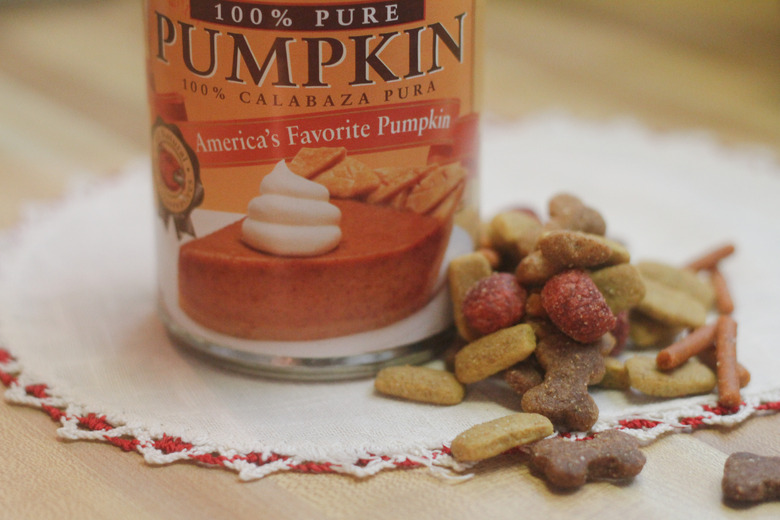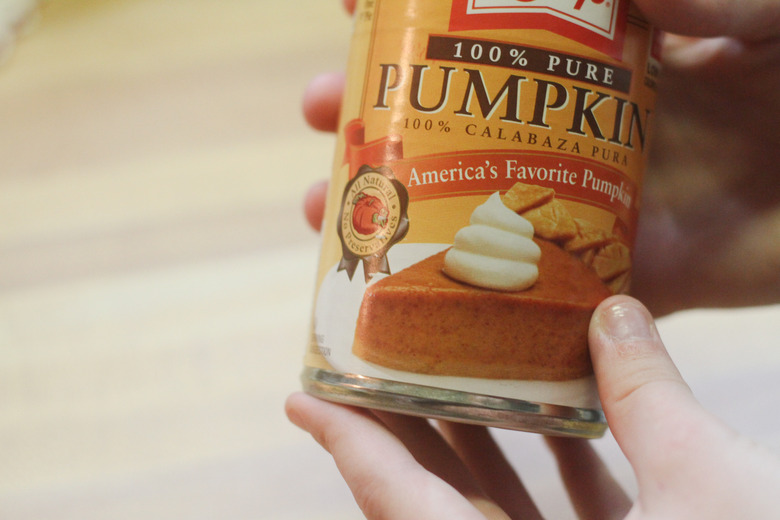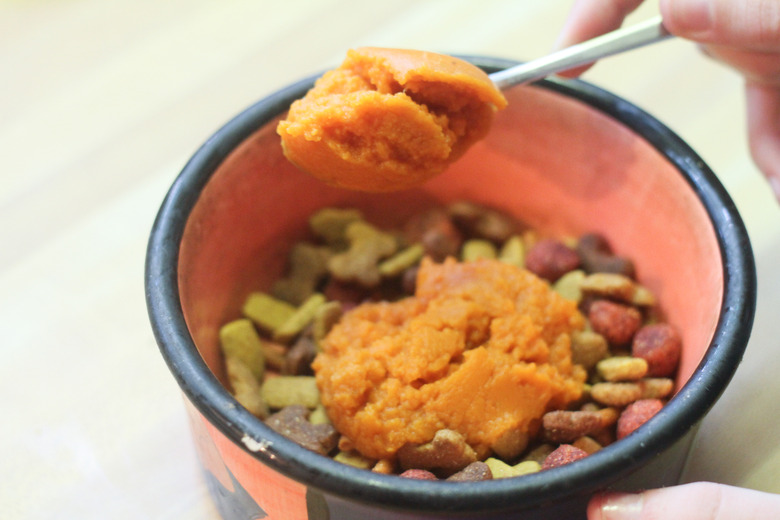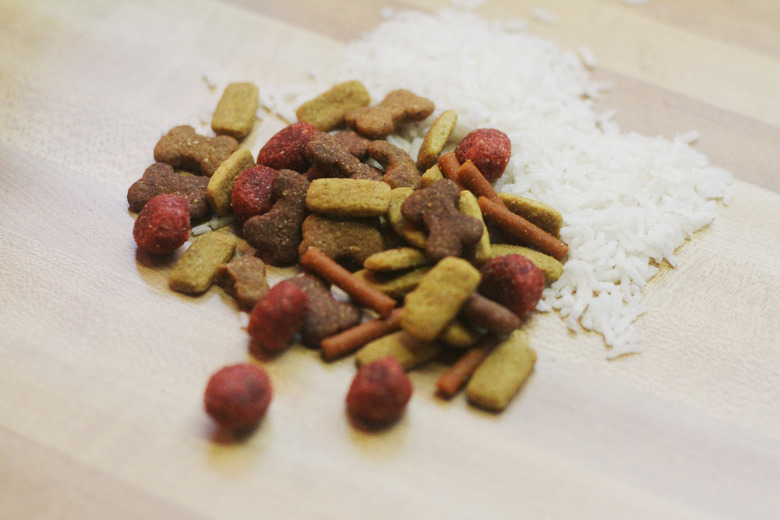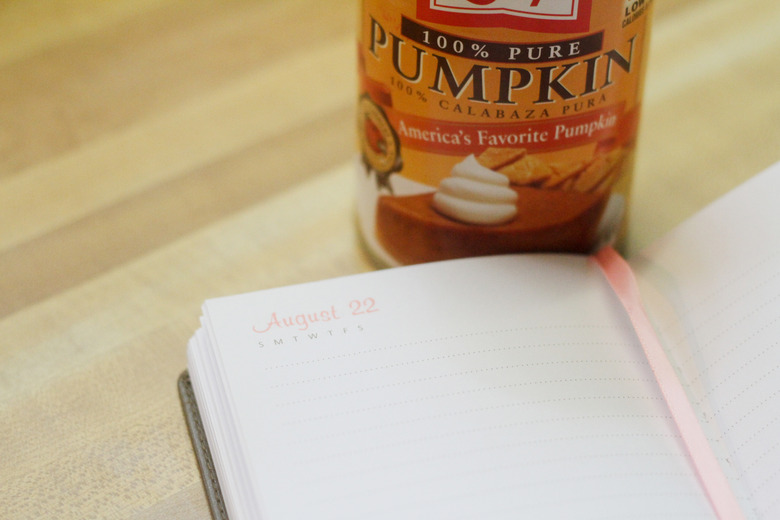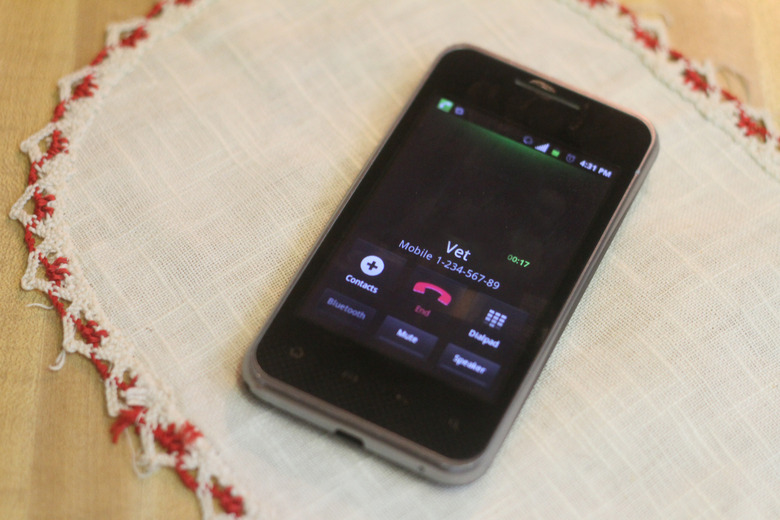Dog Diarrhea & Pumpkin: A Natural Remedy That Works
We may receive a commission on purchases made from links.
Warning
Do not give your dog the whole can of pumpkin at one time.
Disclosure: At Cuteness, we are committed to being the go-to resource for pet owners and animal lovers. We only recommend products we think our audience will love. If you purchase something by clicking on one of these links, we may receive a small commission of the sale and the retailer might receive some data for accounting purposes.
Pumpkin is a natural and inexpensive food that can help your dog recover from diarrhea. Canned pumpkin without any additives or spices will firm up your dog's stool.
One of the easiest ways to treat dog diarrhea is combining the fiber in pumpkin and probiotic qualities in specially-formulated commercial treats. Zesty Paws Probiotic Bites serve up 3 billion cfu of probiotics, prebiotics and digestive enzymes in a tasty pumpkin soft chew. If your dog prefers crunch, Brutus and Barnaby sweet potato dog treats taste like pumpkin and cinnamon and have anti-diarrheal properties to set your dog's digestion right.
If you don't have time to wait for an Amazon order to show up at your door, head to your local grocery store and pick up a can of plain, unflavored pumpkin.
How to use pumpkin to treat dog diarrhea
Step 1
Purchase plain canned pumpkin from a grocery store. Do not get pumpkin pie filling or anything with spices.
Step 2
Serve the canned pumpkin to your dog with meals. Add one tablespoon of canned pumpkin to her regular dog food if she's a fifty-pound dog and one teaspoon if she's a small dog, such as a chihuahua.
Step 3
Plain boiled rice is another option for a dog with an upset digestive tract. You can mix the canned pumpkin in with the rice.
Step 4
Continue the pumpkin regimen every day until you notice a firmer stool.
Step 5
Contact your vet if your dog still has digestive problems after a week of eating canned pumpkin.
Always check with your veterinarian before changing your pet's diet, medication, or physical activity routines. This information is not a substitute for a vet's opinion.
